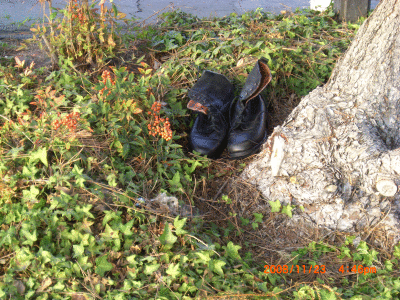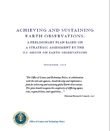|
Some recent reads:
|

|
|
Some work I do: I co-chair the Geohazards Community of Practice (GHCP) of the Group on Earth Observations (GEO). Visit the web site of the GHCP ...
I co-chair the Coastal Zone Community of Practice (CZCP) of GEO. Visit the web page of the CZCP ...
I maintain the pages at geo-tasks.org as a work space for the main activities I am involved in in GEO. These activities involve the GEO Work Plan Task ST-09-02: Promoting Awareness and Benefits of GEO; the GEOSS Portfolio for Science and Technology; a calendar for S&T Meetings (please submit any meeting information to be included in this calendar to me); and the web pages of several workshops. From January 2012 onward, the web page for the new Task ID-03 will also be maintained there. I am also involved in the design and population of the GEOSS User Requirement Registry (URR), including the compilation of a set of tutorials. My page on geodesy, ggos, and GGOS is available here ... |
Some timely (annotated) links: Americans Denial of Global Warming: Do we really need to care about that? Seems like between one-third and one-half of Americans still believe that there is real evidence of global heating (they still call it warming), or that if some warming is happening, it would be due to "natural variability." Others believe that scientists are still debating the point. In this video, the USCD historian Naomi Oreskes discusses some of the reasons for the widespread misunderstanding or ignorance of scientific discourse and consensus (including organized campaigns aimed at the creation of public doubt and confusion concerning science; one of the "bad guys" being the George C. Marshall Institute: Science for Better Public Policy). "We are as gods and have to get good at it": Listen to Stuart Brand, whose sequence of arguments at a first look seem to make sense, but if you think about, you might agree with me that his thinking is fundamentally flawed. And to a large extent his thinking is opposed to the deep thinking that James Lovelock (see also wikipedia) puts on our table in "The Vanishing Face of Gaia," although Lovelock's ideas about nuclear energy being the only green solution are flawed, too. If you want to discuss these issues with me, send me a message (see at the end of the page). Here is some more substantial thinking: Can we save civilization? Read Lester R. Browns "Plan B 4.0 - Mobilizing to Save Civilization" available at the Earth Policy Institute ... For geophysical and geodetic details on recent earthquakes in Northern Mexico (Baja), Chile, and Haiti, visit the SuperSite Page ... |
Picture of the month ...
|
Story of the month ...
|
Thought of the month ...
|
|
If you have a thought, story, or picture worth to be considered as thought, story or picture of the month, please feel free to share it with hpplag@unr.edu. If you have comments on the pictures, thoughts, or stories of the months, you may also use the form below to send them to me. |



